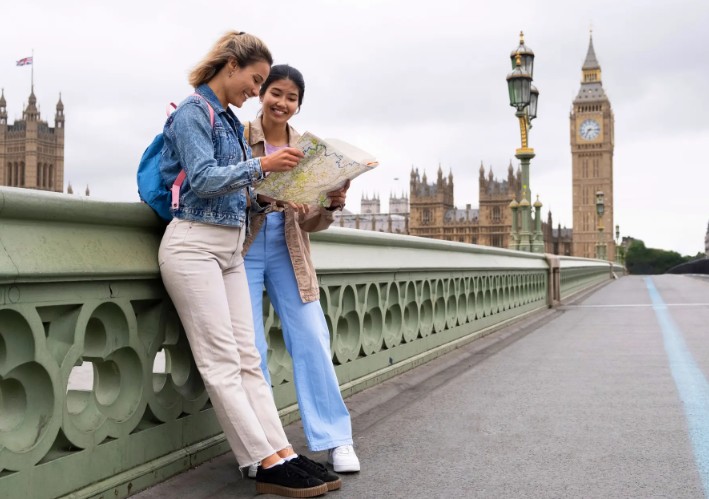Travel restrictions are popping up across the country once again, but some health experts – including the former head of the Food and Drug administration – worry these measures will do more harm than good in the fight against COVID-19.
The United States is among a growing number of countries that have restricted travel from certain African countries to help slow the spread of the omicron variant, which was first identified in South Africa. The latest U.S. entry restrictions prohibit entry among noncitizen travelers who have recently been in South Africa, Botswana, Zimbabwe, Namibia, Lesotho, Eswatini, Mozambique and Malawi.
Scott Gottlieb, a former FDA commissioner who now serves on the board of Pfizer, said during a meeting with the USA TODAY Editorial Board he was “critical” of the United States’ latest round of travel restrictions when first announced on Nov. 26. He worries that if countries are penalized with travel bans for disclosing new variants of concern, fewer nations will voluntarily reveal their findings.
► Hawaii travel:What travelers should know about the severe weather and state of emergency in Hawaii
► Are travel bans worth it?:They could slow the spread of omicron but they have repercussions, experts say
“I would not have done that,” Gottlieb said. “If we’re going to be punitive every time a country does the right thing, the subset of countries that do the right thing is going to get smaller and smaller.”
Gottlieb believes the U.S. could have slowed the spread of the new variant through enhanced vaccine and testing requirements for travel, which would cut back the number of travelers by being “intrusive and onerous.”
As of Monday, most foreign travelers must be fully vaccinated to enter the U.S. by air and take a coronavirus test one day before departure, regardless of vaccination status or nationality. U.S. citizens and permanent residents do not have to be fully vaccinated to fly into the country.
But Gottlieb warned that no travel restrictions will completely eliminate the spread of the virus within the U.S.
► What travelers need to know:New COVID testing rules for international air travel start
“This isn’t something that’s going to be solved through travel restrictions,” Gottlieb said. “You’re not going to completely eliminate it, especially in a big country like ours, an open society where we’re not going to ban travel from U.S. citizens. We’re not going to be able to enforce post-travel quarantines. We’re just not going to be able to do it. I mean, the level of measures we’d have to adopt I don’t think would be sustainable in our society.”
Story continues below.
► Cruise returns to sea:Norwegian cruise ship that docked in New Orleans with breakthrough COVID cases back at sea
The World Health Organization has also spoken out against blanket travel bans, saying they “will not prevent the international spread” and can “adversely impact global health efforts during a pandemic by disincentivizing countries to report and share epidemiological and sequencing data.”
White House COVID-19 response team coordinator Jess Zients said Tuesday that the U.S. travel restrictions against the African countries are “a reasonable measure for a reasonable period of time” and officials are reevaluating the policy “day to day.”
Will US citizens need a booster shot to travel?
Gottlieb added that he doesn’t believe the Centers for Disease Control and Prevention will require booster shots for travel until they change their definition of “fully vaccinated,” which currently includes two doses of a two-dose series like Pfizer and Moderna or one shot of a single-dose vaccine such as Johnson & Johnson.
Gottlieb believes businesses, colleges and cities will require boosters before the CDC, which issues COVID-19 travel orders for the U.S.
“Part of this is going to depend on what happens with omicron,” Gottlieb said. “We’re going to be slow to change at a national level. … I don’t think we’re going to change the travel requirements until we change the definition of what it means to be fully vaccinated.”
► Travel warnings:CDC warns against travel to France, Portugal, Jordan and Cyprus amid high COVID levels
Last week, CDC director Dr. Rochelle Walensky said the definition of “fully vaccinated” has not changed, despite the agency’s push for booster shots.
“We are absolutely encouraging those who are eligible for a boost six months after those mRNA doses to get your boost. But we are not changing the definition of ‘fully vaccinated’ right now,” Walenskysaid. “We are continuing to follow the science in this area. … As that science evolves, we will look at whether we need to update our definition of ‘fully vaccinated.’ “
Follow USA TODAY reporter Bailey Schulz on Twitter: @bailey_schulz.





More Stories
Los Angeles Party Bus Rental Service: The Ultimate Guide to Luxury Transportation
U.S. DOJ Sues to Block JetBlue, Spirit Merger
Mexico ‘Do Not Travel’ advisory in effect for US residents ahead of spring break